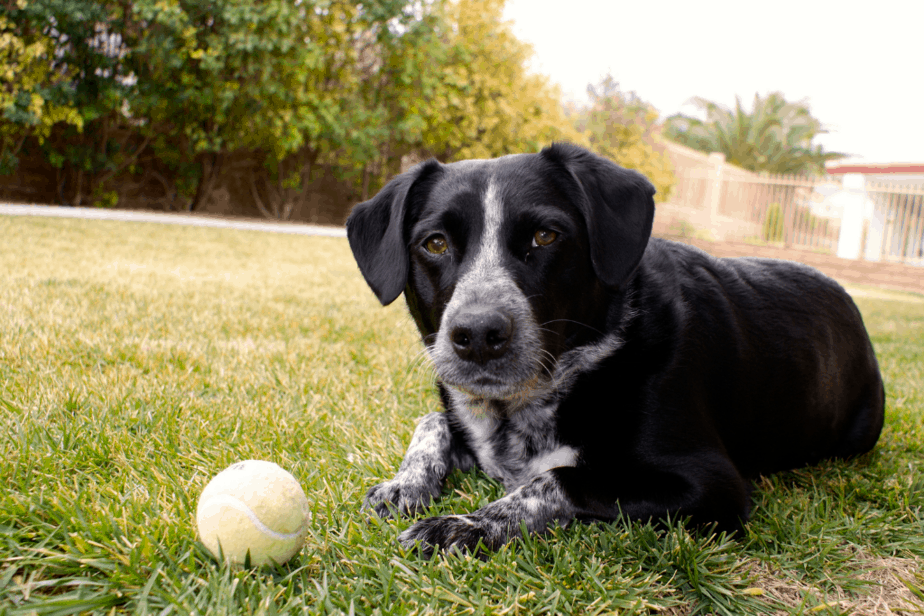Playing fetch with your dog is a great way to exercise, But what happens if your pup won’t play? You may be wondering why your dog doesn’t want to play fetch the ball? and what you do so you can get your dog back in the game for some fun!
Chase and Fetch are by far one of the most famous and classic Dog games. Several dog breeds across the world have learned, grown, and lived their life fetching balls or their favourite toy.
Fetching is a great way to bond with your dog (even with an unfamiliar dog). Because it is all about running and jumping, your canine is also getting his/ her dose of daily exercise.
Dogs love to fetch, although you may notice your furry companion losing interest in the same. Or what if this interest was never really developed in the first place?
While most of the dogs love fetching and cashing, why is your dog not playing fetch? There’s nothing secretive behind the same, but a number of obvious reasons we are soon going to discuss.
Why Doesn’t My Dog Play Fetch?
Fetch is a universal dog game; every dog may have played once in their lifetime (or maybe forced to play).
Because most of the dogs are so smooth with it, pet owners often force their dogs to play it.
However, several of them notice their canine is actually not interested in playing Fetch.
You may have confusion, but we don’t. It’s normal for dogs to not like an activity that is loved universally.
It is simply like you don’t find snowfall fascinating, but others term it ‘Heavenly’.
List of reasons why your dog won’t play fetch (Possibly)
They SIMPLY do not like the game
Nothing is surprising about the thought, but not all dogs love to Play Fetch.
Running after a toy or ball, catching it, and bringing it back may not FASCINATE your canine.
They may have a loose interest.
Dogs are quite similar to humans. Like us, they, too, tend to lose interest in things they once loved.
Thus, if your dog once played fetch and does not respond to it now, they may have lost interest.
Or simply, the activity is not bringing them any kind of reinforcement or enjoyment.
They might not know how to play Fetch.
If you have adopted a really small puppy, do not expect him to behave like those grown-up canines. For a game of Fetch, you simply have to teach him first.
Throw a ball, run towards it and encourage your dog to do the same. Or take your canine to a dog park and let him observe how other dogs play fetch
Maybe they are LAZY.
Fetching needs energy, and if your dog is not hyperactive, the game is not for them.
Also, if you own a couch potato breed instead of running after a ball, they will prefer staying lethargic.
Maybe their internal drive doesn’t push them with interest.
Some dog breeds simply do not know about the concept of chasing and fetching.
For example, dogs like Retrievers, poodles, German shepherds, and others are born to pick up items.
It means, without a second thought or training, they will chase and fetch anything you throw.
Though on the contrary, there are dog breeds that require a little guidance.
Once you cultivate their interest, your evening is then absolutely booked for a game of Fetch.
They may not like the ball or toy you are throwing
Dogs are very particular about their toys. Just like human babies, they too have some favourites.
And if you are trying to make them fetch the wrong one, the game may not just work.
Instead, use their favourite stuff toy (even if it is ripped apart) or the softball they play with.
Maybe there are any underlying health problems.
Has your dog always loved playing Fetch? And now they simply do not respond to it?
If yes, then make sure it is not because of any physical ailment.
Physical problems like arthritis may impact the kind of reinforcement your dog experienced by playing Fetch.
Check if there is any hidden injury?
If your dog has suddenly stopped responding to their daily fetch game, it may be because of any injury.
Not all injuries are blood; thus, check them for any muscular injury, dislocated bone, etc.
Their eyesight is possibly detouring.
Some dogs suffer from vision issues, even at a very young age.
It can happen due to some external injury, internal condition, or even heredity.
So, if it is recently that your dog isn’t responding to play a game of Fetch, it is because he is finding it difficult to see.
Notice him and if you find other signs, consult with your vet soon.
They are simply Tired.
Imagine you have just gone through a week full of physical and mental exhaustion; you would like to rest, right?
And just like that, if your dog isn’t playing Fetch, they are simply tired.
Instead of forcing and over-exhausting them, give a day or two of rest.
Bonus: An aging brain can decrease your dog’s ability to respond to the environment around you. Unlike an extremely active young life, age can make it difficult for him to make with the pace. Playing fetch, hiking, or running around can become a task. Thus, avoid overstressing them.
A daily walk in the garden and normal activities at home will do fine for them.
What dog breeds are not playful? What is the least playful dog to play fetch with?
One thing that is sure about couch potato breeds is that they are extremely cuddly.
Unlike those hyperactive canines, they will not step out until it is their routine walk hour.

The 10 Least Hyper Dog Breeds
- Japanese chin
- Cocker Spa
- Brussels Griffon
- Pekingese
- Tibetan spaniel
- Chow chow
- Greyhound
- English bulldog
- Pomeranian
- Pug
What is the most playful dog? What is the best dog to play fetch with?
Throw, Chase, and Fetch, a paw-perfect game for several dogs.
Not all, but most of the dogs find a kick while running after objects.
It can be their favourite toy, a butterfly in your garden, a kite flying high in the sky, or so.
They don’t care about the hurdles but will keep chasing their aim. Here are such 20 dogs who you can play fetch with.
Top 20 Dog Breeds for Fetch
- Australian Shepherd
- English Whippet
- German Shorthairs
- Nova Scotia
- Boxer
- Jack Russell terrier
- Belgian Malinois
- Golden Retriever
- Border Collies
- Pembroke Welsh Corgis
- Miniature Schnauzer
- Standard Poodle
- Gull Terrier
- Bakharwal Dog
- Joining
- French bulldog
- Portuguese water dog
- English Springer Spaniel
- Labrador Retriever
- Vikhan Sheepdog
How long can a dog play fetch?
Depending upon their breed, health, age, and energy level, they can play fetch from 30 minutes through 2 hours.
It is likely to the time they normally give into physical activities per day.
If your dog has already gone for 3-hour long hiking, they may likely avoid playing Fetch thereafter (for the day).
Is playing fetch bad for dogs? Is fetch mentally stimulating?
Playing Fetch is not bad but one of the best activities for dogs.
It has so many positive aspects that are directly responsible for improving their behaviour.
Fetch also enhance the dog’s mental stimulation. They are always curious and attentive to where the ball is, how fast they can run, when to bring it back, etc.
It balances both their physical and mental energy and attentiveness equally.
Advantages of playing Fetch
- Encourage human and dog bond
- Great form of daily exercise
- Great way to release energy
- Behaviour Improvement and Mood Enhancement
- Relives anxiety
- Enhance both mental and physical stimulation
Disadvantages of playing Fetch
- Health issues due to over-exhaustion
- Obsessive behaviour seeing ball any time or at any place
- Chances of physical injury
- Dogs become prone to joint issues
How do I get my dog to bring the ball back?- Teaching Fetch to your Dog
Choose their favourite toy. A ball will do great as well.
Show it to your dog and let them snatch it from your hand.
Now throw the toy/ ball close and command your dog to run after it.
The command works great when making your dog play fetch. Command them to bring the stuff back.
You can keep a spare toy in your hand to lure them in case they do not bring the ball/ toy back.
Praise and reward them for every successful turn.
TIP: Do not throw the ball extremely far when your dog is still new to the game. Also, avoid using lightweight stuff (toy/ ball) so that your dog does not feel uncomfortable bringing it back.
Partying words
Practice, Patience, and Consistency will brush your dog’s fetching skills.
However, if they are not interested in playing Fetch with you, try to find the cause instead of forcing them.
Once you know your dog enjoys the activity, the chances are that you two are going to have great fun every day.

